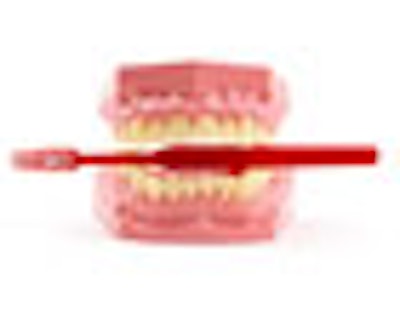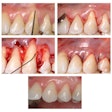
Perfectly compliant patients may still be a distant dream for dentists, but there are ways to nudge them in the right direction. One such way could be motivational interviewing.
The technique can yield positive changes in oral health behavior in people with severe mental illness and may be useful for the general population as well, according to a recent study (Journal of Dental Research, July 2009, Vol. 88:7, pp. 648-652).
Motivational interviewing is used in psychology to improve maladaptive behaviors such as smoking, drinking, and overeating, said lead author Fidaa Almomani, Ph.D., M.S., a professor at the Jordan University of Science and Technology. Some studies have demonstrated its ability to improve oral hygiene and change maladaptive behaviors such as poor oral hygiene habits, he added.
A directed, client-centered counseling style designed to promote behavior change, motivational interviewing's key components include expressing empathy, rolling with resistance, supporting self-efficacy, and eliciting change talk, Almomani said.
The current study is the first to use the technique on people with serious mental illness to improve their oral hygiene and oral health, he explained.
Motivational interviewing "has been used for the general public in the literature, and we wanted to see if it is effective for people with mental illness, too," Almomani added.
A 2006 study compared the effect of a motivational interviewing counseling visit or traditional health education for mothers of young children at high risk of developing dental caries. After two years, researchers noted that children in the motivational interviewing group exhibited significantly fewer new caries than those in the control group (Journal of the American Dental Association, June 2006, Vol. 137:6, pp. 789-793).
Motivational interviewing is "a promising approach that warrants further attention in a variety of dental contexts," the study authors concluded.
Another study found that a motivational interviewing-style intervention shows promise to promote preventive behaviors in mothers of young children at high risk for caries (Pediatric Dentistry, January/February 2007, Vol. 29:1, pp. 16-22).
Short sessions effective
For the latest study, 60 individuals with severe mental illness (schizophrenia, bipolar disorder, and depression) and at least one gradable tooth in each sextant were recruited from a community program and randomly assigned to two groups: motivational interviewing plus oral health education or oral health education alone.
The researchers assessed plaque scores, oral health knowledge, and self-regulation at baseline and at four and eight weeks.
A doctoral psychology student trained in motivational interviewing and supervised by an expert in the technique conducted brief motivational interviewing sessions of 15 to 20 minutes. The principal researcher administered the education sessions, providing information about the effects of severe mental illness on oral health, the advantages of good oral hygiene, and the disadvantages of bad oral hygiene.
All participants received two pamphlets summarizing the information from the educational sessions, instruction in using a mechanical toothbrush (Crest SpinBrush Pro), a reminder system, and weekly telephone calls for four weeks.
Researchers noted an improvement in plaque, autonomous regulation, and oral health knowledge across time for both groups. However, individuals in the motivational interviewing group improved significantly more than those who received only oral health education.
In dental practice
While the motivational interviewing sessions in the study were conducted by a trained psychologist, adopting the technique into a general practice environment shouldn't be a problem, Dr. Almomani said. Dentists, oral hygienists, and other medical professionals can be trained to use motivational interviewing during dental school and can take workshops on how to use the technique, he told DrBicuspid.com.
The technique does not add much extra time to a patient exam, Dr. Almomani noted. "Our study showed that 15 to 20 minutes ... will be effective," he said.
Motivational interviewing is a good way for dentists to discuss oral health and hygiene with patients who have a serious mental illness and other resistant populations, he concluded.
A brief motivational interviewing session before the dental education session can lead to "improved knowledge and oral hygiene relative to education alone in a population of traditionally underserved individuals with severe mental illness," Dr. Almomani and his co-authors wrote. "These results are encouraging and may offer an effective strategy for oral health professionals to facilitate health behavior change both with individuals who have severe mental illness as well as for the general population."
Copyright © 2009 DrBicuspid.com



















